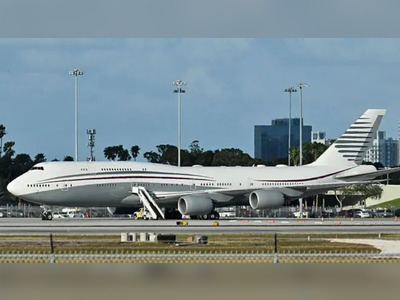Israeli Military Actions in Gaza Spark Allegations of War Crimes
The ongoing conflict has led to devastating civilian casualties and has intensified international scrutiny of Israel's military conduct.
The conflict in Gaza has escalated dramatically since October 7, 2023, when Hamas launched an incursion into Israel leading to the deaths of approximately 1,200 individuals, including over 800 civilians.
In response, Israel has conducted extensive military operations in Gaza, resulting in a reported death toll of over 54,607 Palestinians, with more than 125,341 injured, as of June 4, 2024, according to the Gaza health ministry.
The severity of civilian casualties has prompted allegations of war crimes under international law, including claims of genocide against Palestinians.
Eyewitness accounts describe ongoing Israeli military actions characterized by airstrikes and shelling, particularly in densely populated areas, exacerbating the humanitarian crisis in the region.
In southern Gaza, the recent establishment of food distribution points has been marred by violence, with reports stating that Israeli forces opened fire on civilians, leading to at least four fatalities and numerous injuries as people sought essential supplies.
This is part of a disturbing trend that has resulted in over 110 deaths and thousands injured while pursuing food since the Gaza Humanitarian Foundation began managing these distributions in late May.
The international community's response remains varied, with some Western governments expressing growing concern over Israel's military tactics and their implications, particularly the blockade of humanitarian aid.
A British government minister described the use of food as a weapon of war, pointing to violations of international law.
Humanitarian organizations warn of an impending catastrophe in healthcare, with hospitals in Gaza facing critical shortages of supplies and fuel.
Officials from the Gaza health ministry have indicated that emergency services are on the brink of collapse, projecting that within days, the remaining operational hospitals may cease to function due to resource depletion.
Since the conflict's escalation, over 22 hospitals have been rendered inoperative directly due to military actions.
There are serious restrictions on reporting from the region, complicating efforts to verify claims and accurately assess the situation on the ground.
The Israeli government has severely limited access to Gaza for foreign journalists since the onset of hostilities, which has raised alarms regarding media freedom and the safety of local journalists, with over 180 reported killed during the conflict.
The International Committee of the Red Cross (ICRC) has voiced its alarm over the ongoing humanitarian suffering in Gaza, emphasizing that both sides must adhere to the Geneva Conventions which mandate protections for civilians in conflict zones.
Legal experts and humanitarian workers have echoed these concerns, warning that breaches of these laws could result in accountability measures against those perpetrating them, including potential war crimes investigations.
Tensions continue to escalate, with both domestic and international repercussions for Israel's military strategies.
Calls for an immediate ceasefire and negotiations for humanitarian assistance have grown louder among various countries, reprising debates surrounding state sovereignty, humanitarian law, and the responsibilities of warring parties to protect civilian populations.
In response, Israel has conducted extensive military operations in Gaza, resulting in a reported death toll of over 54,607 Palestinians, with more than 125,341 injured, as of June 4, 2024, according to the Gaza health ministry.
The severity of civilian casualties has prompted allegations of war crimes under international law, including claims of genocide against Palestinians.
Eyewitness accounts describe ongoing Israeli military actions characterized by airstrikes and shelling, particularly in densely populated areas, exacerbating the humanitarian crisis in the region.
In southern Gaza, the recent establishment of food distribution points has been marred by violence, with reports stating that Israeli forces opened fire on civilians, leading to at least four fatalities and numerous injuries as people sought essential supplies.
This is part of a disturbing trend that has resulted in over 110 deaths and thousands injured while pursuing food since the Gaza Humanitarian Foundation began managing these distributions in late May.
The international community's response remains varied, with some Western governments expressing growing concern over Israel's military tactics and their implications, particularly the blockade of humanitarian aid.
A British government minister described the use of food as a weapon of war, pointing to violations of international law.
Humanitarian organizations warn of an impending catastrophe in healthcare, with hospitals in Gaza facing critical shortages of supplies and fuel.
Officials from the Gaza health ministry have indicated that emergency services are on the brink of collapse, projecting that within days, the remaining operational hospitals may cease to function due to resource depletion.
Since the conflict's escalation, over 22 hospitals have been rendered inoperative directly due to military actions.
There are serious restrictions on reporting from the region, complicating efforts to verify claims and accurately assess the situation on the ground.
The Israeli government has severely limited access to Gaza for foreign journalists since the onset of hostilities, which has raised alarms regarding media freedom and the safety of local journalists, with over 180 reported killed during the conflict.
The International Committee of the Red Cross (ICRC) has voiced its alarm over the ongoing humanitarian suffering in Gaza, emphasizing that both sides must adhere to the Geneva Conventions which mandate protections for civilians in conflict zones.
Legal experts and humanitarian workers have echoed these concerns, warning that breaches of these laws could result in accountability measures against those perpetrating them, including potential war crimes investigations.
Tensions continue to escalate, with both domestic and international repercussions for Israel's military strategies.
Calls for an immediate ceasefire and negotiations for humanitarian assistance have grown louder among various countries, reprising debates surrounding state sovereignty, humanitarian law, and the responsibilities of warring parties to protect civilian populations.









